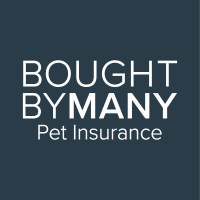The guidance on this site is based on our own analysis and is meant to help you identify options and narrow down your choices. We do not advise or tell you which product to buy; undertake your own due diligence before entering into any agreement. Read our full disclosure here.
Pet Insurance Companies that Pay the Vet Directly
Best pet insurance deals for your pet
Quickly compare 25+ providers. Pay from £2.82 a month.*
Most pet insurance companies will pay your vet directly—however not all vets are willing to take payment from insurance. By using direct-to-vet payments a pet owner only pays the excess out of pocket, which is certainly preferably for any large vet bills. Find out which pet insurance companies will pay direct and learn about when vets are willing to accept direct payments.
- Is there any Pet Insurance that Pays the Vet Directly?
- Tips to Get Your Vet to Accept Direct Payment from Pet Insurance
Which Pet Insurance Pays the Vet Directly?
Nearly all pet insurance companies will pay your vet directly—however, your vet may not be willing to accept direct payment from an insurance company. This is especially true if your vet hasn't worked with your insurance before, or had a prior bad claims experience. For this reason, it can be better to go with a larger pet insurance company like Petplan, ManyPets (formerly Bought by Many) or Animal Friends, as your vet may be more likely to work with them direct, but ask your vet to be sure—especially if they expect payment upfront for a large vet bill.
Best Dog Insurance UK
In our opinion, some of the best and most popular dog insurance companies in the UK (from most to least expensive) are Petplan, ManyPets and Animal Friends. Learn more about theses companies below and in our article on the best types of dog insurance here.
Petplan Pet Insurance
ManyPets (formerly Bought By Many) Pet Insurance
Animal Friends Pet Insurance
An important point is that your vet may request pre-authorisation of a potential claim in the case of direct-to-vet payment. The vet might want this to ensure that they get paid—without it they may ask for payment from you at the time of service. (Policyholders also sometimes want pre-approval before proceeding with an expensive procedure.)
Since direct-to-vet payments usually depend on the willingness of your vet more so than the insurance company, it's important to ask your vet about this. They won't be able to recommend an insurance company in general but they should be able to tell you which insurance companies they have or would potentially accept direct payment from.
If your vet agrees to accept a direct payment from your insurance company, then you only need to pay your excess to the vet (any any amounts not covered by insurance like flea and tick medicine, wormer, treatment for conditions that is not covered, etc.). Setting up a direct payment can be extremely beneficial for a pet owner, especially when vet fees run into the thousands of pounds for major procedures like surgery or emergency care.
- Most pet insurance companies are willing to pay the vet directly
- Ask your vet if they are happy to work with the pet insurance company regarding direct payments
- Direct payments may require pre-authorisation
- Your vet might charge an admin charge (e.g., £20) to work with the insurer for a direct payment
Pet insurance can pay out in one of two ways:
Direct Payment
With a direct payment, the insurance company pays the vet directly (less the excess). The pet owner is only out of pocket for the amount of the excess, which they probably pay at the time of service.
Indirect Payment
With an indirect payment, the pet owner first pays the entire vet bill and then claims the amount back from the insurance company. The amount of reimbursement sent from the insurance company to the pet owner would be lowered by any excess that applies. For larger vet bills, indirect payments can certainly be a burden for some pet owners.
We've checked the terms for over two dozen popular UK pet insurance companies and found the following are willing to pay the vet directly:
^ Note about LV= pet insurance. We recently spoke with a vet who said LV= were known for being very slow to pay vets; as a result, many vets were no longer happy to accept a direct payment from the insurance company. If this is important to you, be sure to ask your vet about their experience before making a decision.
Are you looking for a new pet insurance policy from a company that will pay vets directly? Compare quotes below in under 2 minutes. All of the companies in the panel will pay vets directly. Remember to ask you vet if they're willing to work with the insurance company you choose.
Do all Vets Accept Pet Insurance?
Each veterinary practice will have their own policy on handling insurance claims. While most pet insurance companies are willing to pay a vet direct, not all vets will accept insurance payments. Some vets will only accept payment from a pet owner at the time of treatment. Or vets may accept direct payment from some insurance providers, but not others. This is one of the important questions to ask a veterinary practice before choose a vet, or a pet insurance company.
Whether or not your vet accepts direct payments from your pet insurance company may depend on a number of factors. For example, what is their previous experience with your insurance company? And how big is your veterinary practice? For instance, small animal hospitals and referral centres are more likely to accept payment direct from an insurance company than a local vet with a small staff. Visits to a hospital or referral centre are likely to cost a lot (e.g., to pay for diagnostic imagery such as MRIs, surgery, etc.), so it's a particularly helpful when these institutions accept direct payments.
Larger insurance companies have an advantage, because a vet is more likely to accept direct payments from larger insurers such as PetPlan, Animal Friends or Insurance Emporium. For example, over a third of UK vets have signed up to Animal Friends' Pawtal payment system, which allows vets to access details of cover and pre-authorisation for treatment within an hour and will pay your vet the same working day (for successful claims submitted before 5 pm). To find out if your vet will accept payment from any specific insurance company, contact the vet directly.
Pre-Authorization
There are certainly ways to increase the odds that your vet can and will take a direct payment from your insurance company. Vets are more likely to accept direct payment from an insurance company if you plan ahead and get pre-authorization of payment. By getting pre-authorization, the insurance company essentially confirms you have appropriate cover and agrees to payment, so the vet doesn't need to worry about non-payment. It's not unusual for a vet to require pre-authorisation.
If you just show up for an appointment and ask your vet about direct payments when it comes time to settle the bill, it's unlikely that your request will be accepted. It will depend on your vet and their previous experience with your insurance company, but enquiring well ahead of time should increase the odds your vet will agree to a direct payment. In that case, you only need to pay the excess (if one applies) at the time of the appointment.
Finally, be aware that your vet may impose an administration fee of £10 to £20 to handle any pre-authorization paperwork and/or dealing with the insurance company on your behalf. This administration fee will not be covered by your insurance, but is the responsibility of the pet owner.



